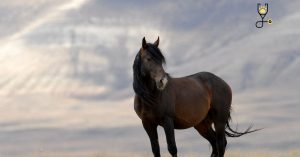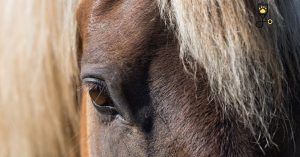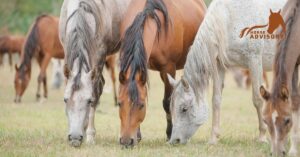No one wants their horse to spook. Unfortunately, it’s something that can happen even if you take all the necessary precautions. Horses are prey animals and they’re programmed to be suspicious of things that could potentially harm them. But with a bit of understanding and some diligence on your part, you can help keep your horse from spooking in most situations. Here are 10 tips for preventing a horse from spooking.
What is horse spooking?
Horse spooking is a common behavior that occurs when a horse becomes startled or frightened by something in its environment. This can include sudden movements, loud noises, unfamiliar sounds, and other unexpected stimuli. While horse spooking may seem like irrational behavior, there are some steps you can take to help prevent this issue and keep your horse feeling safe and secure.
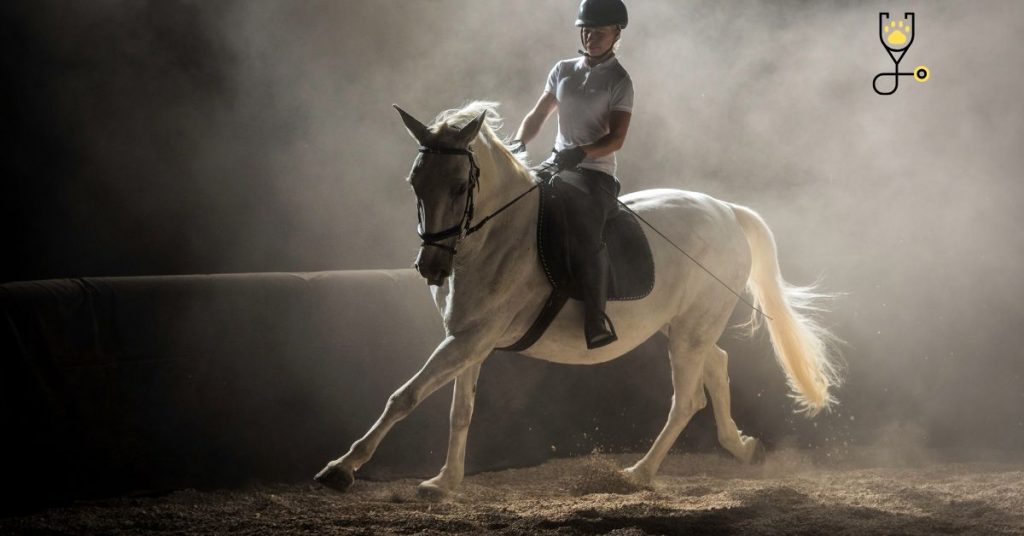
10Tips To Prevent a Horse from Spooking
Here are some tips to help you prevent your horse from spooking:
1. Know your horse’s triggers.
The first step to preventing a horse from spooking is to understand what may be causing it to become startled in the first place. This can vary depending on the individual horse, so it’s important to pay attention and learn more about what sets your horse off. Some common potential triggers include loud noises like thunder or fireworks, strange objects like garbage cans or paper bags, sudden movements like someone jumping out at them, and unfamiliar locations or situations.
2. Introduce new stimuli slowly and carefully.
When introducing your horse to something new that you think may trigger their spooking behavior, such as a new location or object, do so gradually over time and take care not to startle them. Try to approach them from the side, and make sure you give them plenty of time to become comfortable with what they’re seeing. If you notice your horse beginning to show signs of anxiety, such as increased heart rate or nervous behavior, take a step back and try again another day.
3. Provide lots of positive reinforcement.
Along with introducing new stimuli slowly and carefully, it’s also important to provide lots of positive reinforcement when your horse behaves calmly in these situations. This can help build their confidence and keep them feeling safe, which may reduce the likelihood that they will spook at something down the road.
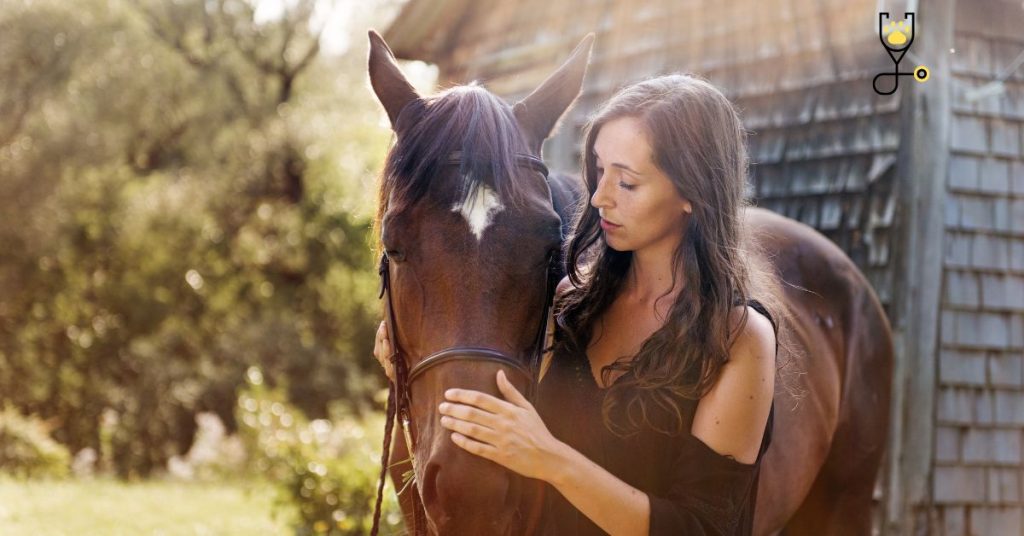
4. Give your horse plenty of room and space when possible.
Particularly if you know your horse is prone to spooking, it’s important to give them plenty of room and space whenever possible. This can mean moving objects or obstacles out of the way that may be causing them distress, avoiding busy public areas if necessary, and giving them their own area or space where they feel comfortable.
5. Provide a safe haven for your horse.
If you notice that your horse is becoming spooked more often, consider creating a “safe haven” for them somewhere on your property. This could be a small enclosure with limited access points that would allow your horse to hide away when they become anxious or nervous in certain situations. It could also simply be an area in your pasture where they can retreat if they need to calm down and regroup.
6. Create a routine.
Another way to help prevent horse spooking is to create a regular routine for your horse that includes daily exercise, feeding times, and other activities. This can help them feel more comfortable and relaxed in their environment, which may make them less likely to become startled by new stimuli.
7. Manage your horse’s diet carefully.
In addition to creating a regular routine, it’s also important to manage your horse’s diet carefully. Too much sugar or simple carbohydrates in their diet can make them more excitable and anxious, which may increase the likelihood of spooking behavior. It’s best to work with an equine nutritionist to determine the best diet for your individual horse and ensure they’re getting all the nutrients they need to remain healthy, active, and calm.
8. Train your horse calmly and consistently.
Along with managing your horse’s diet carefully, it’s also important to train your horse calmly and consistently to help prevent spooking behavior. This can include basic obedience training as well as desensitization exercises that expose them to potential triggers in a gradual and controlled manner.
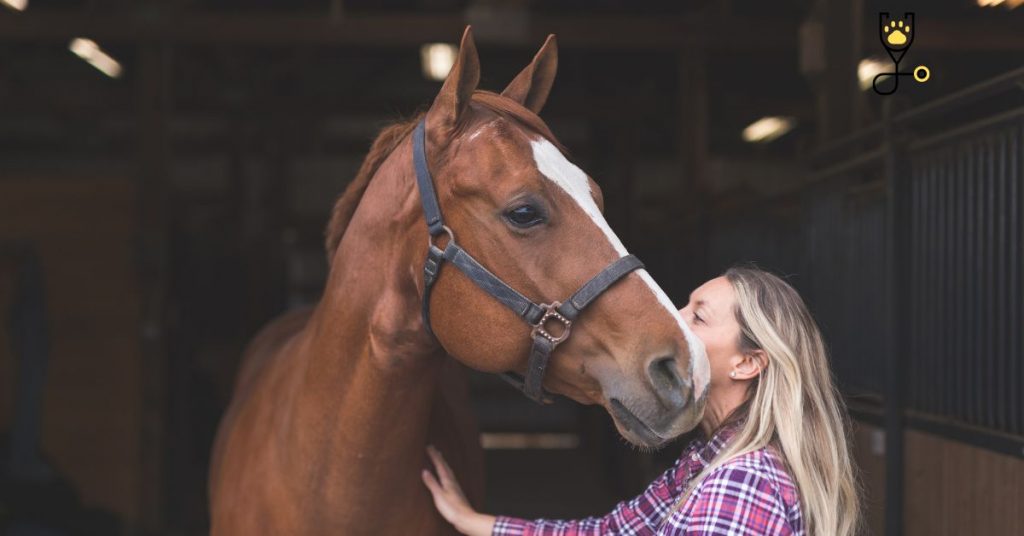
9. Consider professional assistance if needed.
If you’re struggling to find ways to prevent or manage your horse’s spooking behavior, consider working with a professional equine trainer or animal behavioral specialist who can help you develop an individualized plan for success. They may be able to provide additional tips, techniques, or resources that have been successful for other horses in similar situations.
10. Pay attention and stay alert when riding.
Finally, one of the best things you can do to prevent your horse from spooking is simply to pay attention and stay alert when riding. Be aware of how your horse is behaving and what they’re focused on at all times, and be ready to take control if they seem anxious or nervous about something in its environment. With time and patience, it’s possible to help reduce horse spooking behaviors by following these tips.
However, if you notice your horse continues to struggle with anxiety or fear reactions on a regular basis despite your best efforts, consider consulting with an equine behavior specialist for additional assistance. In some cases, medication may also be recommended to alleviate any underlying mental health issues that could be contributing to the problem.
Conclusion
If you are concerned about your horse’s tendency to spook, there are many things you can do to help prevent it. Some key strategies include creating a safe haven for your horse, managing their diet carefully, and training them calmly and consistently. Additionally, it is important to pay attention and stay alert when riding your horse, as this can help you identify potential triggers or anxiety episodes more quickly. With time and patience, it is possible to reduce horse spooking behaviors and keep both you and your horse safe and happy.
Frequently Asked Questions
Q: How can I help prevent my horse from spooking?
A: There are many different strategies that can be effective for reducing or preventing horse spooking. Some key things to consider include creating a safe haven for your horse, managing their diet carefully, and training them calmly and consistently. Additionally, it’s important to pay attention and stay alert when riding to help identify potential triggers or anxiety episodes more quickly. With time and patience, you can often reduce or prevent spooking behavior in horses.
Q: What are some tips for managing my horse’s diet?
A: There are several things you can do to manage your horse’s diet in order to help prevent spooking behaviors. Some key recommendations include avoiding high-sugar or highly processed feeds, limiting the number of concentrates or treats they receive, and working with an equine nutritionist to determine their individual needs. You should also avoid using any drugs or supplements that could alter your mood or behavior in a negative way.
Q: What are some tips for training my horse?
A: There are many things you can do to train your horse in order to reduce spooking behaviors. Some key recommendations include focusing on basic obedience training as well as desensitization exercises, which expose your horse gradually to potential triggers in a controlled manner. Additionally, it is important to remain calm and consistent when training your horse so that they learn to trust and respect you as their handler. And finally, be sure to reward your horse for good behavior and remain consistent with any disciplinary measures you use.
Q: What should I do if my horse continues to spook despite my best efforts?
A: If you are struggling to reduce or prevent horse spooking behaviors despite your best efforts, it may be a good idea to consult with an equine behavior specialist or animal trainer as soon as possible. They can help you develop an individualized training plan that addresses the specific needs of your horse and may also recommend medication or other therapies if necessary. It is important to remember that all horses are different and respond differently to various management techniques, so it’s important not to give up hope if one strategy doesn’t work right away. With patience and persistence, you can often make significant improvements in your horse’s behavior and help keep both you and your horse safe and happy.
Q: What should I do if my horse starts to spook while I’m riding?
A: If your horse begins to spook while you’re riding, it’s important not to panic or react in a negative way. Instead, try to remain calm and focused on keeping yourself and your horse safe, while also paying attention to potential triggers that could be causing the spooking behaviors. You may also want to seek the help of an equine behavior specialist if you are struggling with this issue or if you notice any underlying mental health concerns that could be contributing to the problem. With time and patience, it is possible to reduce or prevent horse spooking behavior and keep both you and your horse safe and happy.


